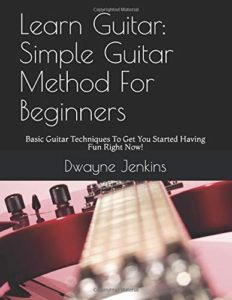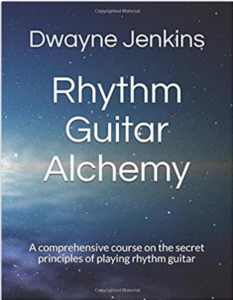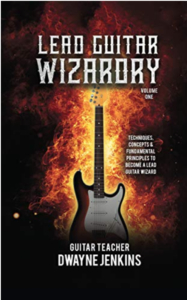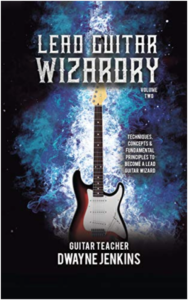How Important Is It To Learn Music Theory?

Learning music theory can be beneficial in a lot of ways when it comes to playing music. But more so when it comes to understanding how the notes in music work together in harmony. It is this harmony that allows the music to connect with the listener.
The language of music
Music is a language like any other type of language. English, Spanish, Chinese, etc. And the concepts and principles that govern the musical language are very much like the concepts that rule the written language of words, phrases, and paragraphs.
Musicians who understand the language of music theory know how to use it just like writers know how to use the letters of the alphabet to create stories that move the reader. A musician knows how to use the notes to move the listener.
Benefits of music theory
There are many benefits to learning music theory:
-
write out your own ideas that others can execute
-
transcribe music from the audio recording.
-
understand what notes reside in any key.
-
learn how to transpose these different keys.
-
put notes together to create chords.
-
String together chords to create chord progressions.
-
figure out scales and notes that are in them.
And many, many more things. Too many to list really. But these are just a few that will give you a better understanding of what can be accomplished by learning music theory. Is it important to learn music theory? I’d say it couldn’t hurt. It gives you a better understanding of what you are doing.
Playing by ear
A lot of guitar players (especially rock guitar players) play by ear. Which means they don’t depend on knowledge of music theory to write their songs. They just put enough hours into the instrument to figure it out by ear and know what to play through hours and hours of dedicated practice.
I’ve read in many interviews in guitar magazines and have also seen them in interviews on TV and on YouTube, with successful guitar players (you know the ones who inspire you to play) and they have mentioned time and time again that they don’t know any theory.
Some (most actually) don’t even know how to read sheet music. There is an old joke that says:
How do you get a guitar player to turn down?
Put sheet music in front of him.
Reading sheet music can be very beneficial, but it doesn’t seem like it is necessary to be able to write great songs. The Beatles didn’t know about the inner workings of music theory and how to read sheet music as a symphony musician does, yet they wrote some of the best rock songs the world has ever known or ever will know.
So, how important is knowing music theory?…
When playing by ear, they listen to a song or a piece of music and replicate it on the guitar. This is a very common practice among rock guitar players. Some of the best players like this and still do to this day.
Playing by ear is a whole other skill set that can be developed if you just take the time. Some people are born with this skill. I’ve heard people say they could play anything they hear without having to look at the sheet music. They prefer not to.
A great many rock songs that you like were written like this. Not by studying music theory and then writing from that point of view, but by listening to sounds in their head and getting them to come out through their guitar.
A little bit of both
It is a good idea from my point of view as a guitar teacher to learn a little bit of both. Learn some music theory for a better understanding of the instrument and learn to play by ear. Both require two different skill sets and that is why most guitar players choose one or the other. But if you could acquire skill sets in both areas, you could be above most guitar players who have a skill set in just one.
You learn music theory to get a full understanding of how music works and you learn to play by ear for motor skill development. See, if you just study music theory you’ll get great at understanding the music but you won’t get great at playing it because your physical abilities won’t be developed.
That is why it is so important to add playing the guitar as well. Now if you take the music theory you learn and apply it to writing your songs, that will develop these skills. But don’t overlook the fun of playing songs by your favorite artists.
Lesson conclusion
Is learning music theory important? Yes! It can help you to understand how music works and how to communicate the language to others who know it. It can also help you to do all that is stated above. But make sure you don’t get so wrapped up in learning music theory that you miss out on the fun of playing songs by your favorite artists.
There is a lot of fun doing this. Not to mention the skills that you learn along the way. Ear training, timing development, and the overall discipline of trying to get a song down the way it is written. This skill requires much study and practice and will also help to improve your guitar playing as much as studying music theory.
Remember most rock guitar players that have hits on the radio play by ear without looking at sheet music. So study their approach to the instrument and follow suit. You will learn all kinds of skills not found in studying just music theory alone.
And if you need any further help, check out the books I have authored on playing guitar:
A starter book that teaches the fundamental principles of how to play rock guitar. From the correct tools to get started with chords, rhythm, picking hand development, establishing timing and classic rock riffs.
A classic study on learning to play the guitar no matter if it is acoustic or electric. A step-by-step method that takes you from not knowing anything about the guitar to being able to play songs and understand what you are playing.
The science of playing rhythm guitar. This book is for the person who wants to take their rhythm playing to the next level. For those who know a few chords but want to expand on them. Those who know how to strum but want to learn more. A person who has good timing but wants to develop it better. All this and more can be found in this book in a simple step-by-step method.
Beginners guide to playing lead guitar and guitar solos. From learning about music notation, 12 bar blues, rock riffs, minor pentatonic scales, personality notes, harmonies, octaves, and everything else needed to create your own guitar solos, and learn guitar solos by your favorite artists in your favorite songs.
A more advanced guidebook on how to take your guitar solos to the next level. For the person who already knows how to play guitar solos, but wants to enhance their playing with new scales and guitar licks. This volume goes through modes, additional minor scales like harmonic, melodic, diminished & more advanced concepts such as using double stops in your solos and melodic sequencing. Plus many more things to improve your learning and understanding of music theory as it relates to playing guitar solos.
So check them out and if you have any questions about what I’m teaching, be sure to visit my website at DwaynesGuitarLessons where you will find all the answers to your questions. And if you need private instruction, feel free to contact me.
Best of luck and take care.
Sincerely, Dwayne
Chord Progressions That Work With The Minor Pentatonic Scale




